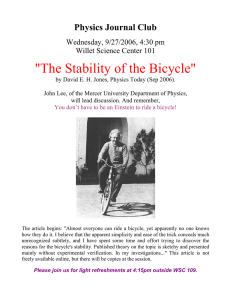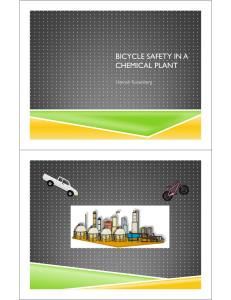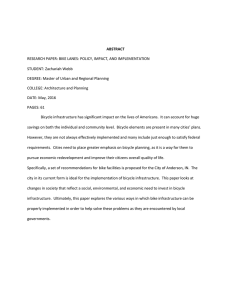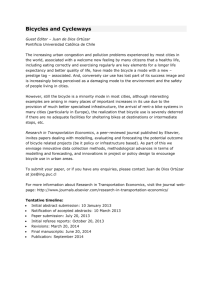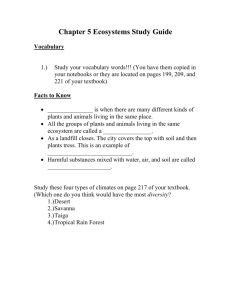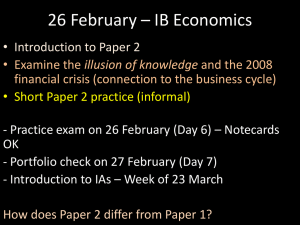Descriptive Writing Guide & Sample Essay (English 9)
advertisement
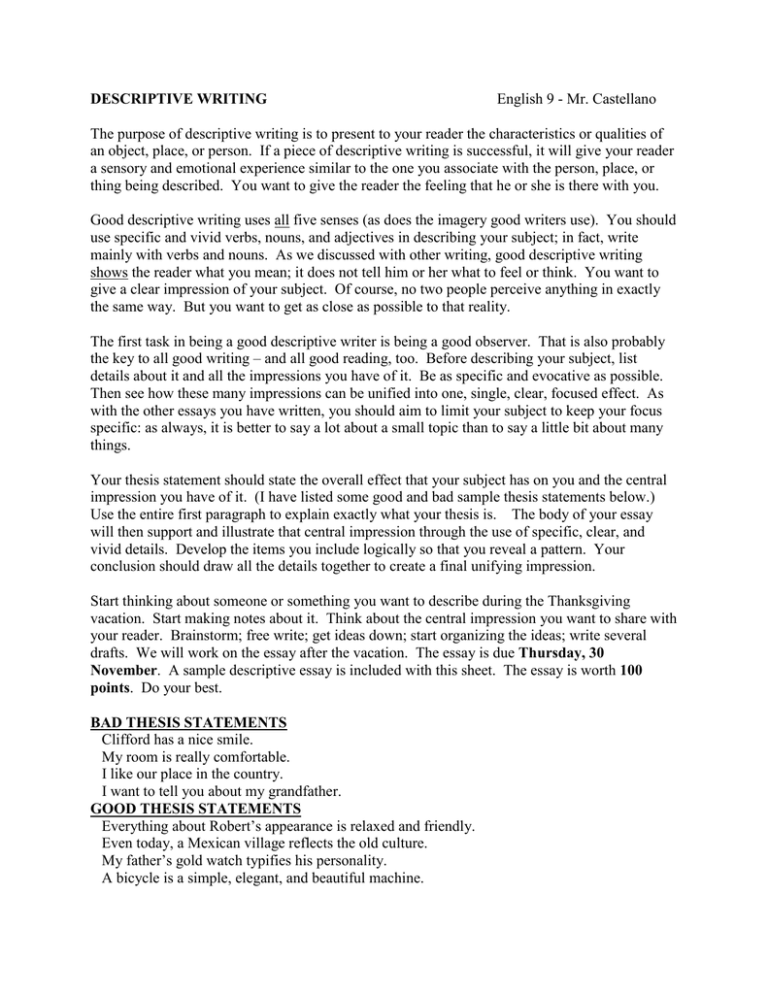
DESCRIPTIVE WRITING English 9 - Mr. Castellano The purpose of descriptive writing is to present to your reader the characteristics or qualities of an object, place, or person. If a piece of descriptive writing is successful, it will give your reader a sensory and emotional experience similar to the one you associate with the person, place, or thing being described. You want to give the reader the feeling that he or she is there with you. Good descriptive writing uses all five senses (as does the imagery good writers use). You should use specific and vivid verbs, nouns, and adjectives in describing your subject; in fact, write mainly with verbs and nouns. As we discussed with other writing, good descriptive writing shows the reader what you mean; it does not tell him or her what to feel or think. You want to give a clear impression of your subject. Of course, no two people perceive anything in exactly the same way. But you want to get as close as possible to that reality. The first task in being a good descriptive writer is being a good observer. That is also probably the key to all good writing – and all good reading, too. Before describing your subject, list details about it and all the impressions you have of it. Be as specific and evocative as possible. Then see how these many impressions can be unified into one, single, clear, focused effect. As with the other essays you have written, you should aim to limit your subject to keep your focus specific: as always, it is better to say a lot about a small topic than to say a little bit about many things. Your thesis statement should state the overall effect that your subject has on you and the central impression you have of it. (I have listed some good and bad sample thesis statements below.) Use the entire first paragraph to explain exactly what your thesis is. The body of your essay will then support and illustrate that central impression through the use of specific, clear, and vivid details. Develop the items you include logically so that you reveal a pattern. Your conclusion should draw all the details together to create a final unifying impression. Start thinking about someone or something you want to describe during the Thanksgiving vacation. Start making notes about it. Think about the central impression you want to share with your reader. Brainstorm; free write; get ideas down; start organizing the ideas; write several drafts. We will work on the essay after the vacation. The essay is due Thursday, 30 November. A sample descriptive essay is included with this sheet. The essay is worth 100 points. Do your best. BAD THESIS STATEMENTS Clifford has a nice smile. My room is really comfortable. I like our place in the country. I want to tell you about my grandfather. GOOD THESIS STATEMENTS Everything about Robert’s appearance is relaxed and friendly. Even today, a Mexican village reflects the old culture. My father’s gold watch typifies his personality. A bicycle is a simple, elegant, and beautiful machine. Sample Descriptive Essay English 9 Mr. Castellano A bicycle is an elegant, simple, and beautiful machine. In an age of incredible technological advances and complicated machines, the bicycle has a straightforward design and is decidedly low-tech. Its mechanisms are simple and few; its form can be considered a work of art. A bicycle in motion integrates into the environment. While it is over 100 years old, the bicycle is truly a tool for the future. First of all, a bicycle has almost no internal working parts. With most so-called modern conveniences, we throw a switch and something mysterious happens in the inner recesses of the machine. With a bicycle, however, everything that makes it work is fully exposed, visible to the unaided eye, and easily maintained. And these working parts are simple, straightforward, and clean. The most sophisticated machinery on a bicycle is the gear change mechanism – the derailleur. The derailleur is a parallelogram operated by springs and moved by pushing and pulling wires; there are no internal working parts to confuse matters. Simple. The rest of the bicycle is the development of classic simple machines: levers, wheels, pulleys. Even the most unmechanical person can learn to repair and maintain a bicycle. Its simplicity is part of its beauty. The bicycle also presents an image of perfect symmetry and cleanliness. It has a wheel in front and back, pedals and handlebars on either side, and a few tubes connecting everything together. Further, the lines of these tubes are clean, straight, uncomplicated: basically, another parallelogram. When no one is sitting on it, a bicycle is unobtrusive and understated. It takes up very little room and does not leak gas, water, or radiator fluid: it just stands there. The fact that it requires no power source (except the rider) adds to the beauty and simplicity of the bicycle. It is not pushing the point too far to say that the bicycle is a work of art; it certainly is an excellent example of human ingenuity. When someone is riding a bicycle, however, we see its true elegance and power. The person riding a bicycle moves gracefully. There is very little noise and no pollution. A bicycle maneuvers where other vehicles could never go. As a bicyclist speeds by, a bystander hears only a gentle whoosh. Unlike trucks, cars, and motorcycles, the bicycle barely makes an impact on the scenery; it seems almost as much a part of the environment as the natural elements. Except for a person walking alone, it is the most unobtrusive form of transportation. Most of us have ridden a bicycle since we were five or six – a fact that adds to its simple beauty. As we face overcrowded roads, increased pollution, and soaring energy prices, the bicycle presents a modest yet powerful alternative to the hectic pace of life in the 21st century. In an age of over-complication, over-sophistication, and larger-than-necessary tools, the bicycle is welcome relief from the drudgery and complexity of life in the technological age. underlined sentences – topic sentences bold – thesis statement
